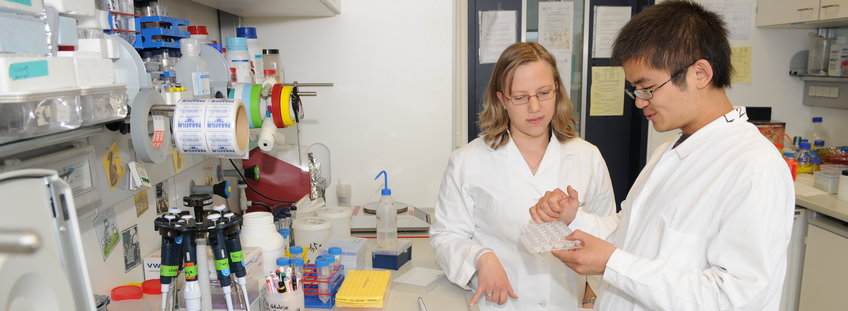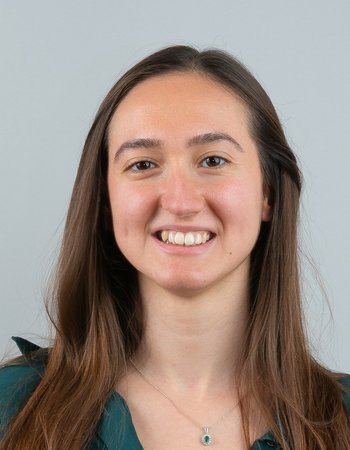
PhD Students
The education and support of young scientists is a key objective of the Max Planck Society and, alongside basic research, is a priority at the Max Planck Institute of Biophysics. Currently, 46 PhD students (37% female, 67% male) – from all over the world – are working at the Max Planck Institute of Biophysics in Frankfurt.
How to apply for a PhD position at Max Planck Institute of Biophysics
We welcome students of the life and natural sciences who would like to conduct research for their bachelor, diploma, masters or PhD degree at the Institute. Please contact the directors or research group leaders at the Institute.

We host, together with Goethe University Frankfurt and Johannes Gutenberg University Mainz, the International Max Planck Research School on Cellular Biophysics (IMPRS-CBP) where new students are admitted once a year. For further information please visit the program website. Our program stands out with a unique training program that starts in September every year.
Generally, students aiming for their doctoral degree are supported by the MPG funding contract (by the Max Planck Society), a fixed-term employment relationship combining the greatest possible freedom of research under the direction of experienced supervisors with social security, even at an early age. The MPG funding contract is based on the Academic Fixed-Term Contract Act (WissZeitVG). The duration of the contract is usually three years with an option to extend by up to twelve months.
How to apply to a Max Planck Institute?
Please note that Max Planck Institutes do not award a PhD degree. PhD students at the institute therefore have to be enrolled at a university. Most students are enrolled at Goethe University Frankfurt, but other constellations are also possible.
Goethe University, as most universities in Germany, does not charge tuition fees. Students do have to pay administrative fees (Semesterbeitrag) of currently around 370 euros per semester. This money goes towards subsidising student accommodation and canteens. It also entitles you to membership at the students’ union, a travel card for public transportation and access to university sports facilities.
More information about studying in Germany, in the Federal State of Hessen and at Goethe University is provided on the websites linked below.
Career Development
Doctoral students receive support in furthering their professional qualifications, acquiring key skills and in gaining teaching experience if this is where their interests lie.
Individual Career Support and Soft Skills Courses are offered regularly at the institute. In addition, our PhD students have access to services offered by the Goethe Research Academy for Early Career Researchers – GRADE. The MPI of Biophysics is a partner in the GRADE center iQbio, which combines the resources offered by several University Departments and Institutes located on the Riedberg Campus.
PhD Student Network
The PhD Student Network at the Max Planck Institute of Biophysics (MPI-BP) in Frankfurt is part of the PhD Student Network of the Max Planck Society, Max Planck PhDnet. Its major task is to offer opportunities to optimise the working environment for graduates enabling them to maximise their scientific achievements and to provide a platform for exchange among doctoral students at the institute.
Each of the departments of the Max Planck Institute of Biophysics has a PhD representative. These internal PhD representatives are the contact persons for PhD student matters within the institute. They organise a number of activities to enhance the exchange between doctoral students, post-docs, group leaders, and other faculty members from all departments of the institute.
In addition, the representatives stay in contact with the Directorate on topics concerning doctoral student matters.
Additionally, one PhD student is the external PhD representative of the Max Planck Institute of Biophysics. She or he is the official link between the PhDnet and the institute and attends the annual Max Planck PhDnet meeting to keep up with recent society-wide changes.
PhD Students Representatives
The representatives are available for enquiries and support during your PhD studies at our Institute.
Graduate Education Coordination









